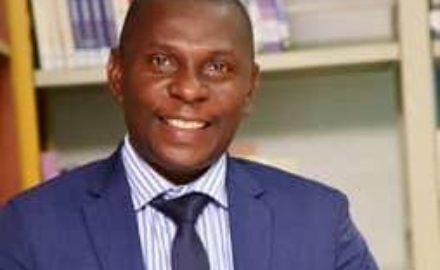OPINION: UGANDA’S CORRUPTION BEGINS WITH EXAMINATIONS CHEATING

By Mesharch W. Katusiimeh
In Sheema
This is the Uganda National Examinations Board (UNEB) season. You will recall that I wrote an article “Cheating is to blame for parent’s frustration with PLE grades” published by the daily monitor on 23 January 2019 after PLE results were released. This article was shared extensively on social media especially whatsapp and Facebook. Thereafter, I received many phone calls and email correspondences from UNEB scouts, examination invigilators and other officials in the education system testifying that indeed cheating had reached alarming levels. I was shocked to learn that parents too are actively involved in examinations cheating. They give money to their kids to buy leaked papers and smart phones so as to easily access the leakage via social media. Inspectors of schools collude with head teachers to flout exams invigilation rules. Teachers including invigilators, who get examination papers hours before the paper is done, drill the pupils/students while giving them tips on how to avoid detection during marking. The list is long. Now as the country is entering the examination season, we need to start a conversation on how we can deal with academic dishonesty especially cheating to avoid past mistakes in our written examinations – the main assessment procedure in primary, high school and university level education in Uganda.
The inspiration for this article is the increasing number of pupils/students, teachers and parents that consider cheating exams as normal and completely independent of corruption. It is common nowadays to hear school head teachers, school directors and even parents saying that if all other schools and students are also cheating, there is no reason they should not cheat as well. Schools convince themselves that the reason they cheat is because they have to if they are to keep pace with others who are cheating. In Uganda, good examination grades mean business as parents will be enticed to bring pupils/students to the school that consistently posts excellent academic grades hence more money. Cheating exams has become a deadly form of corruption because it is said that some schools have invested heavily in cheating to appear more superior to their counterparts. When corruption combines with increasing competition in educational institutions academic integrity is sacrificed.
Pupils in primary schools witness their teachers and parents encouraging them to cheat. Then can a country expect to create a generation of honest, hardworking Ugandans when the young see adults treat cheating and other corrupt practices as normal? If things don’t change, the culture and acceptance of cheating and corruption in the minds of future generations will be cemented and this will be detrimental. The culture of cheating will erode the importance of learning in the minds of students and parents. Why should students and teachers pay attention in class when they are assured of exam leakage? This attitude has followed students into further/higher education, especially in universities where we are witnessing cheating at a grand scale. I have worked at a university level for more than 16 years and I have realized that some students with very good grades at lower levels of education probably cheated. If not, why would they want to be involved in exam cheating? At university, students try hard to find out the questions before the exam from lecturers or the examinations office. Those who fail try to copy from other students during the exam. Others copy from material brought into the exam room. Other students write texts on their hands, arms, thighs etc., and/or using technology (e.g. using mobile phones to obtain answers from the internet or even by sending someone else to sit the exam for them.
Nowadays some employers will tell you that most transcripts presented misrepresent the students’ competencies and strengths. Cheating at all levels has meant that students entering the workforce are essentially incompetent as they had not truly learnt the full body of knowledge expected of them. That is why many employers spend millions and millions of money on training of job entrants which could have been saved had honesty been the norm in schools and higher institutions of learning.
In addition, those who cheat their way through school bring with them a culture of cheating everywhere. They view corruption as a legitimate tool to use in professional life. For example, those who cheated most likely are the same people who will cheat their way into becoming successful politicians and end up in parliament or other top level positions in the country.
It should not surprise us that corruption has been institutionalized. The ‘mafia’ threat in government that manipulates systems for selfish interests is real and was created by a corrupt education system.
Every day that passes, newspapers and other media outlets report of ‘fake’ doctors, ‘fake’ teachers, ‘fake’ parliamentarians, ‘fake’ professors etc.
Academic dishonesty is a very dangerous type of corruption because it happens when people are at such a young age. If a behavior is perceived as correct or normal at this stage, it is more likely that it will be repeated for the rest of the life of the individual, or even be transferred in situations outside education.
By adopting such a corrupt behaviour at such an early stage, young people are more likely to be corrupt as adults as well. Cheating students might grow to become cheating employees and may even ‘encourage’ corruption at the organizational level.
Why has cheating continued to happen? Technology levels has greatly advanced over the last few years, but examination conditions have not been adapted in order to be able to detect cheating through technology. Second, even when cheating during the written examination is detected; it is ignored by the invigilators.
In other words, no further measures are taken because of the stress and discomfort that such a report would entail.
Third, the pressure to pass the exam is immense not just for the pupils/students, but for teachers and school directors who will lose face in the community and incite the wrath of parents if their students fail not to get very good grades. Forth and the most important is that cheating has become a norm because of its perceived frequency over the years. People engage in exam cheating and other malpractices because they believe (correctly or incorrectly) that it is common: that it is what other people in their community, schools, or network do – “I cheat because everybody does”. Cheating appears also to be gaining a sense of acceptability.
Fred Matiang’i, the then Education secretary in Kenya, stunned the country when he released the results of the Kenya Certificate of Secondary Education (KCSE) examinations in 2016. Only 141 straight As were earned compared to more than 2,500 in 2015. The pattern was similar in all other grade classes, with far fewer students earning the top grades when compared to previous years. Investigations revealed that all this was because of the reforms that were introduced including strict supervision and structuring of the entire exam system from setting, to transportation, to invigilation and marking. Before that, corruption in the exams system in Kenya had become a way of life.
Can Uganda do a Kenya? At a political level, the minister of Education and her team of ministers must take this issue of cheating a matter of urgency. If UNEB and generally the Ministry of Education are not to lose further legitimacy, it must impose very strict measures to curb cheating and corruption generally in the examination system. If that is impossible, then, the Ministry of Education can declare the school national exam as a failed policy that schools, and society, would be better off without. Lastly, we must treat exam malpractices especially cheating as a serious form of corruption because of the long term negative impact it has on society. Just like other forms of corruption, cheating has become a norm. Curbing cheating will require a thorough understanding of the social forces that perpetuate the corrupt practices as a whole.
www.mknewslink.com a greater western Uganda news website
Email: wmuhwezi75@gmail.com
Tel: +256702680106






























 Views Today : 300
Views Today : 300 Views Yesterday : 451
Views Yesterday : 451 Views Last 7 days : 3083
Views Last 7 days : 3083 Views This Month : 10138
Views This Month : 10138 Total views : 1447742
Total views : 1447742 Who's Online : 1
Who's Online : 1 Your IP Address : 3.14.131.115
Your IP Address : 3.14.131.115